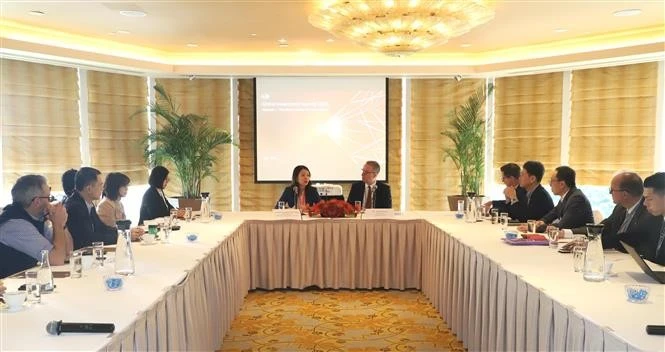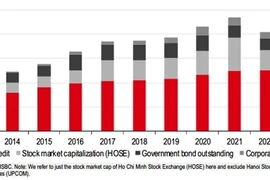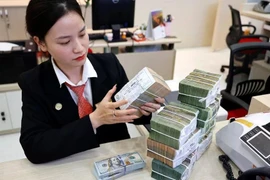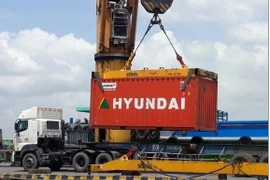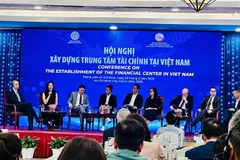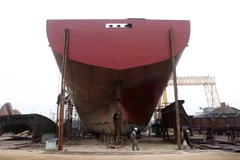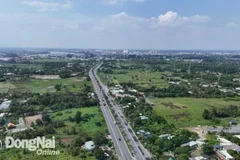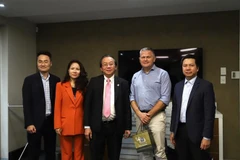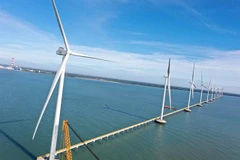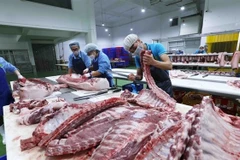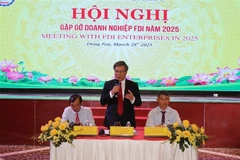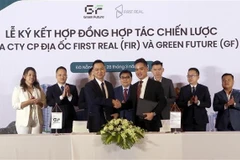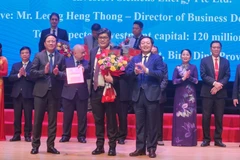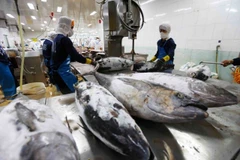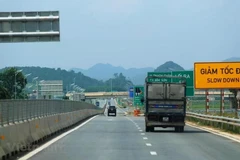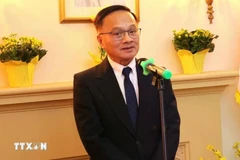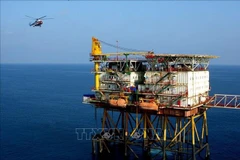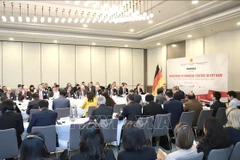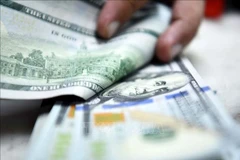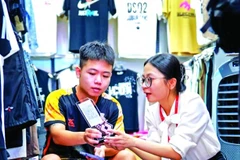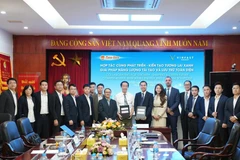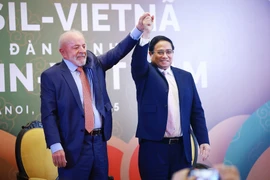Hong Kong (VNA) – Vietnamese Deputy Minister of Foreign Affairs Nguyen Minh Hang attended the second HSBC Global Investment Summit (GIS) in Hong Kong (China) on March 25-26, where she delivered a keynote address at the seminar "Vietnam – the next investment destination."
Hang underscored the significant transformations reshaping the global landscape, presenting both challenges and unprecedented opportunities for economies and businesses. She emphasised that this is a defining moment for governments and enterprises to make suitable decisions.
The official briefed participants on Vietnam’s economic policies, highlighting the nation's progress over four decades of Doi moi (Renewal). She stated that Vietnam is entering a new phase with the highest determination to achieve its development goals for 2030 and 2045.
She outlined Vietnam’s strategy to drive economic growth through three key breakthroughs: institutional reform to unlock development resources, modern infrastructure development, and the cultivation of high-quality human capital. She stressed that science, technology, innovation, and digital transformation are at the heart of Vietnam’s strategy for sustainable and accelerated growth, with the private sector playing a pivotal role in fostering economic expansion.
Hang also highlighted Vietnam’s ongoing efforts to streamline its administrative system, eliminate bureaucratic obstacles, and enhance governance efficiency. She reaffirmed Vietnam’s foreign policy of independence, self-reliance, multilateralisation and diversification, prioritising deep and effective global economic integration with economic diplomacy at its core.
The Deputy Minister invited international investors to expand their presence in Vietnam’s priority sectors, including green transition, digital transformation, innovation, strategic technologies such as artificial intelligence (AI) and semiconductors, renewable energy, and financial centre development. She also called on businesses to contribute to improving Vietnam’s investment climate, enhance competitiveness, and strengthen linkages between Vietnamese enterprises and global supply chains.
While in Hong Kong, Deputy Minister Hang met with Hong Kong’s Secretary for Commerce and Economic Development, Algernon Yau, to explore ways to enhance Vietnam-Hong Kong trade and investment ties. She encouraged Hong Kong businesses to channel high-quality investments into Vietnam, accompanied by technology transfer, workforce training, and expertise sharing in smart governance. She also sought Hong Kong’s support in developing international financial hubs in Ho Chi Minh City and Da Nang, as well as facilitating skilled Vietnamese workers’ access to employment opportunities in Hong Kong.
In response, Yau reaffirmed Hong Kong’s commitment to strengthening collaboration in science and technology, particularly in AI and data centres, and expressed interest in opening an economic and trade representative office in Vietnam.
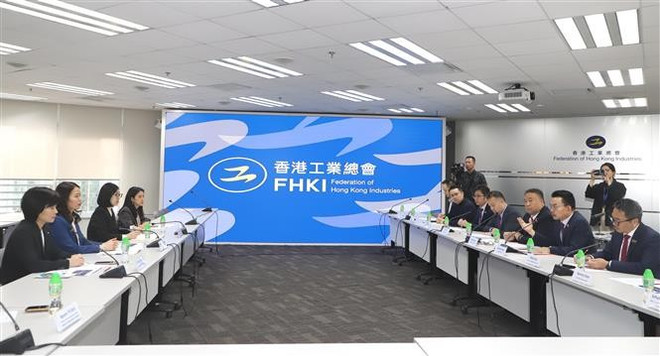
During her meeting with Chairman of the Federation of Hong Kong Industries (FHKI) Steve Chuang, the Deputy Minister urged the federation and Hong Kong businesses to expand investments in Vietnam and collaborate on training high-quality human resources.
She stressed the importance of implementing the Memorandum of Understanding (MoU) signed between FHKI and Vietnam’s National Innovation Centre (NIC). She also encouraged Hong Kong enterprises to organise business delegations to Vietnam to explore investment opportunities, particularly in emerging industries such as semiconductors, AI, e-commerce, and fintech.
Chuang noted Vietnam’s significance as FHKI’s largest ASEAN partner, noting that 60% of FHKI members’ ASEAN investments are concentrated in Vietnam. He expressed hope that Vietnamese businesses will maximise the opportunities and incentives offered by Hong Kong, which could serve as a gateway for Vietnam to access global markets.
On this occasion, Hang also met with HSBC executives, alongside other global business leaders, who commended Vietnam’s remarkable economic achievements, commitment to reform, and forward-looking development strategy. They acknowledged Vietnam as a top-priority investment destination in the region, drawing strong interest from global enterprises keen on expanding partnerships in key sectors such as investment, trade, finance, innovation, digital economy, green economy, circular economy, clean energy, new materials, and environmental technology./.
